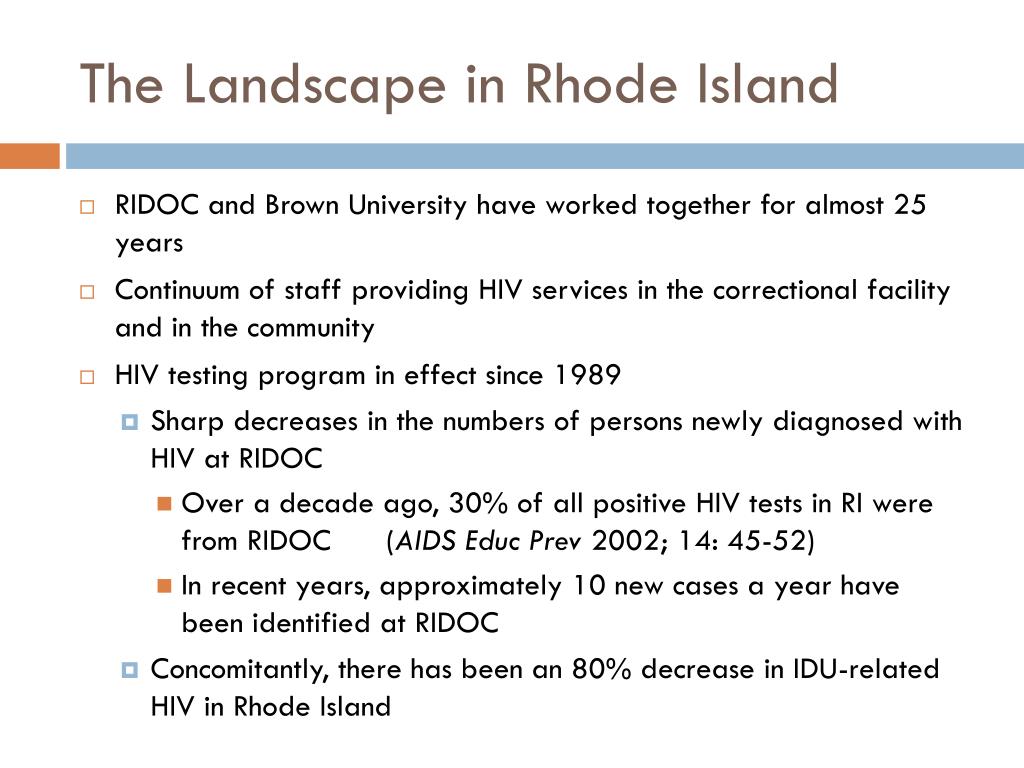

Since 1991, the jail routinely has offered HIV testing to every person admitted as part of the initial medical evaluation conducted within 24 hours of admission. At any given time, the total inmate population in the RIDOC system is approximately 3,000-3,500, including 1,100 housed in the jail. All pretrial detainees and all sentenced offenders (regardless of sentence length or crime) first pass through a centralized state jail that processes approximately 17,000 detainees each year. RIDOC is a unified state correctional system with six facilities for males and two for females. To maximize case identification, all detainees should be offered voluntary HIV testing early in their incarceration as part of the first clinical evaluation, regardless of reported risk factors. If HIV testing had been delayed for 7 days, 72 detainees (43%) would have been released before they could be tested, resulting in a delay in their HIV diagnosis and care, and continued risk for HIV transmission. HIV testing was completed within 24 hours of jail admission.

During this period, 102,229 HIV tests were administered (representing an estimated 40,000-60,000 unique jail detainees), and HIV infection was newly diagnosed in 169 detainees, including 80 (48%) with unknown HIV risk factors. RIDOC reviewed records of HIV testing of jail detainees during 2000-2007. In 2009, the Rhode Island Department of Corrections (RIDOC) reviewed its HIV testing program to assess HIV case identification, characterize HIV risk factors, and estimate the proportion of detainees who might not have been tested if testing had been delayed. 2 However, jail-based testing can be difficult logistically because of rapid turnover among detainees. 1 In 2006, CDC recommended HIV testing in correctional facilities and elsewhere as part of routine medical evaluation. The prevalence of human immunodeficiency virus (HIV) infection among incarcerated persons in the United States (1.5%) is approximately four times greater than the prevalence among persons in community settings (0.4%).

Shared Decision Making and Communication.Scientific Discovery and the Future of Medicine.Health Care Economics, Insurance, Payment.



 0 kommentar(er)
0 kommentar(er)
